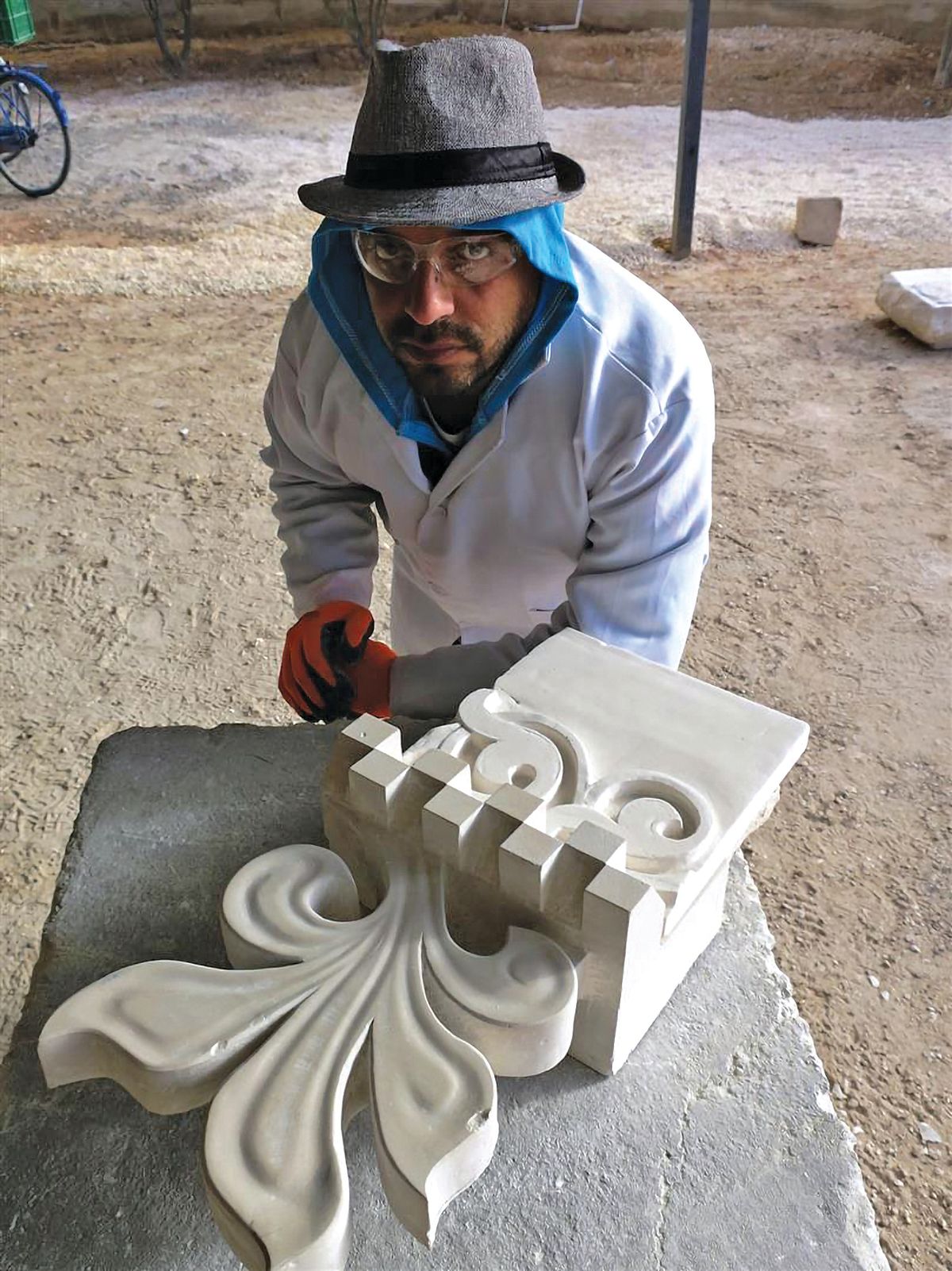The €1bn Louvre Abu Dhabi, a museum that explores connections between cultures, finally opened its doors in November after more than a decade of negotiation, planning and construction. A statement of global intent by the United Arab Emirates, it is big, bold and impressive and is sure to attract international tourists, especially once the adjacent Guggenheim and Zayed museums are completed. But it is not the only way to exercise soft power…
As the doors were being thrown open in Abu Dhabi, 30 men and women entered World Monument Fund’s (WMF’s) new training centre in Mafraq, Jordan. None had picked up a chisel before. Now, four months in to a conservation stonemasonry training programme, they can carve arabesques for Zakhrafa jambs, prepare rectangular billet mouldings or work an ovolo return. Not yet perfect, but astonishing progress, made more remarkable given this is happening 12 miles from the Syrian border, and that most students are refugees who have fled from the neighbouring conflict.
With the backing of the UK government’s Cultural Protection Fund, a £30m initiative to protect heritage in conflict-affected areas of the Middle East and North Africa, the centre’s aim is simplicity itself—take three problems and turn them into a solution.
The problems: how to conserve extraordinary monumental heritage in Iraq and Syria, such as the ancient souk of Aleppo or al-Hadba’ minaret in Mosul, damaged by Islamic State or caught in the crossfire of opposing armies. The issue is exacerbated by the depletion of skilled craftspeople; once the dust of conflict settles, there will be few able to carry out restoration. At the same time, thousands sit in refugee camps, lives on hold, seeking a future.
The solution: train refugees to become the craftspeople and conservators of the future. Give them a skill to help restore their nation’s heritage.
Over the coming year, the centre will train more than 35 people, with the support of the British Council, which co-ordinates the protection fund, and a local partner, the Petra National Trust. Two hundred and eighty schoolchildren will also benefit from opportunities to explore their heritage—learning that spreads and blooms, influencing families and inspiring friends. Soft power.
A thousand miles from Mafraq, I was recently in Tello, southern Iraq, supporting Iraqis to look after some of the world’s most important ancient monuments. This project is part of the British Museum’s (BM’s) £3m Iraq Scheme, a UK government-funded initiative, carried out in partnership with Iraq’s State Board of Antiquities and Heritage (SBAH). It fosters development of heritage skills and addresses the damage caused by conflict.
Tello is in the very heartland of civilisation—where agriculture started, the first towns were born, and where some of humankind’s earliest writing was scratched on to clay tablets. I had the privilege of looking at conservation solutions for what might be the first bridge in the world—an enormous, triumphal structure from 2100BC. Excavated by the French in the 1930s, it has slowly desiccated ever since in the wet-dry salt environment. All amazing, but this is not my main point… the benefit of the scheme extends far beyond critical conservation.
Under the BM’s five-year project, 50 Iraqi professionals will receive training both here in the UK and in Iraq. Bright and curious, they will rise quickly in the Iraqi administrative structure to become leaders and champions for heritage. And they will remain our friends; this is not a one-way process. In addition, projects at Tello and Darband-i Rania in Iraqi Kurdistan, a second BM site, employ more than 100 local people for several months each year. The wages, set by the SBAH, are hugely valued in these areas, some of the poorest in the country.
We need the big set pieces, the lookalike Louvres and Guggenheims, which are wonderful, celebratory moments. But in terms of value for money and impact on people’s lives—people who need it the most—culture and heritage can do extraordinary things on a local scale. Here is soft power that invests not just in a magnificent building or tourism offer, but in people, in restoring pride and offering hope.


